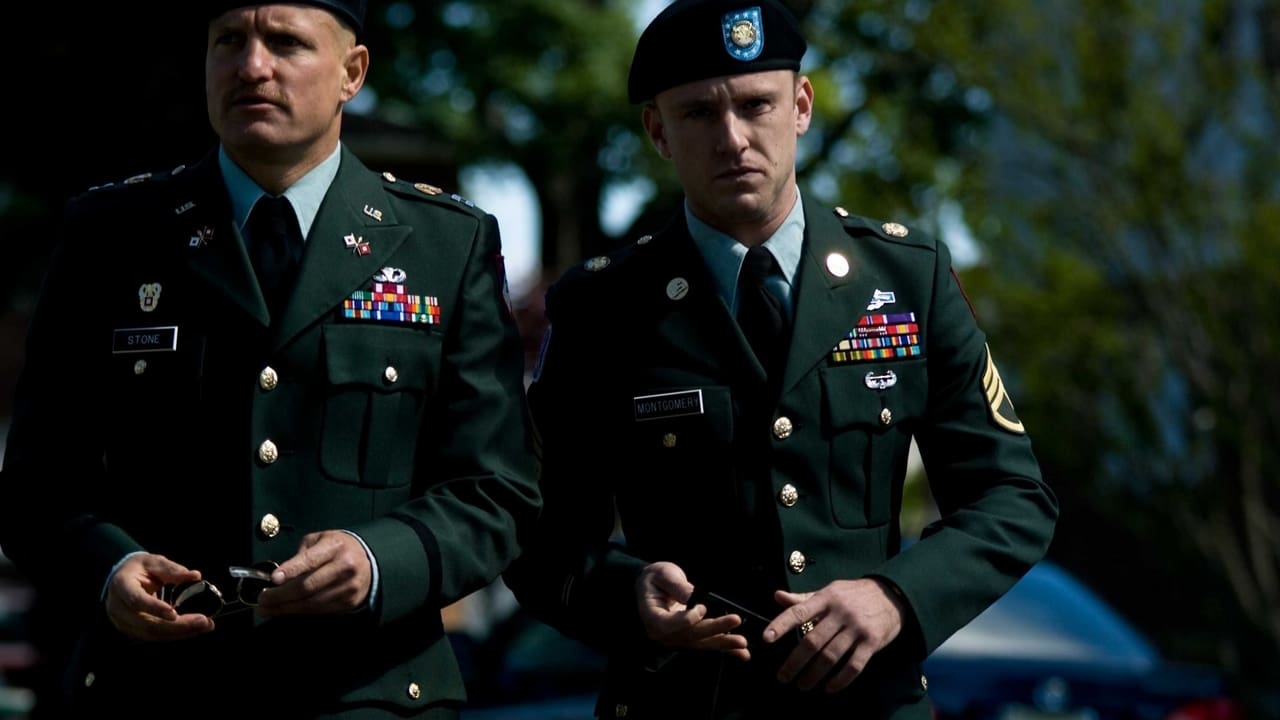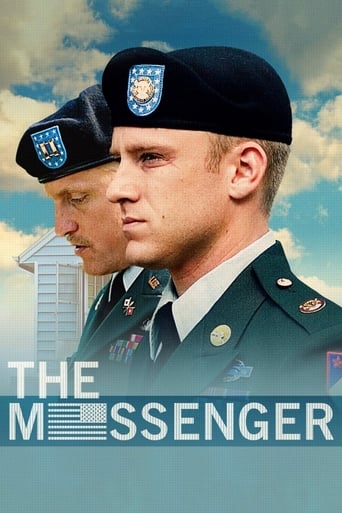Remmak
The aftermath of war, the effect it has on a person, and the challenges of recovery are all revealed in the 2009 film The Messenger. Directed, and written, by Oren Moverman, the film follows the story of an Iraqi war veteran, mentally ill by the wrath of war, who is given the task of reporting a military death to the deceased's family. The film is not an anti-war work, nor a film about returning home, but close observation of effects on families of those killed in battle. The film is a double portrait of two soldiers who announce the death and dissects the seemingly inhuman routine announcements to better show the intimate suffering due to the loss of a loved one and the dangers of any involvement with the recipients of these messages. Ben Foster, playing the part of Staff Sergeant Will Montgomery, carefully composes a veteran in his twenties, whose appearance relentless contrast beautifully with the purity of his intentions - strong, but fragile at the same time. He eventually falls in love a young widow, adding a dramatic, romantic, conflict, to the film. The film offers some shock scenes with conflict brewing. The messengers are hit, spit on, or face some parents, armed with guns that become unstable after the news. Intelligently, rather than filming the war, Moverman simply evokes the pains of war through injury of men (in the leg, eye). This is an interesting choice, allowing humanity to express not from the conflict, but the loss of a loved one, the true subject of the film. The film seems to be set up more of a documentary, in a real environment. The acting is so well done that, for me, it seems the audience is with the actors themselves in the environment. At times, the cameras seem to be unstable and not so scripted. I believe this adds to the 'natural' effect of the film, and the cinematographer was successful in making the audience pay attention to the realness on screen. The editing is jumpy throughout, with, in my opinion, lack of transition. This does not hurt the film at all, and it once again, gives the film a documentary-like kind of feel. At times, it does get confusing about how much time would have passed, or how the actor moved to the new location. I'm unable to say if the realness of the military displayed throughout the film is accurate - as I have never been in the military - it is safe to say that the screenwriter was pretty precise with the information presented. Although tense at times, I believe the script was gentle at times. At times where it was more tense, the script is successful in showing the anger, emotion, and severity of matters at hand. Captain Tony Stone, played by Woody Harrelson, does a good job at displayed a sarcastic, tough, attitude, and I believe his script is very well constructed. In my opinion, the acting throughout the film was very well done. The actors chosen played their given parts smoothly and were great at presenting their characters. Woody Harrelson's character was perfect for him, and I believe he did an exceptional job in this film – and this is definitely went noticed as he was nominated for an Oscar award. His character portrayed a tough, macho, military man, but then as he became closer with Ben Foster's character, Sgt. Montgomery, Harrelson's character opened up and his true emotions and problems became evident. The film score of the film was interesting. The lack of music throughout complimented the true value of drama throughout. If this movie had more background music during dramatic, or tense scenes, I believe it would still be just as good. However, the fact that the director stayed away from this allowed the emotions to prosper even more. Quiet, tense scenes, without music, allowed the viewer to really connect with what was going on. Brilliant non-use of music!The costumes throughout the film truly reflected true military uniform. Even when not on base, the actors kept their sense of patriotism – with Sgt. Montgomery wearing army shirts, white tank tops, or even his uniform, wherever he went. The military hairstyles throughout were also spot-on, definitely complimenting each character. Overall, I thought the film was excellent. It had comedic moments, but mainly I found it to be a sorrowful-dramatic film. After watching the film, it began to make me think about the abundance of service men and women in Hawaii, and I have to wonder if each of them have similar stories, or have family that have left, or friends they have lost in war.
Mike Fennemore
"The Messenger" is an emotionally captivating story. From the very beginning, the look of the film makes you question what the movie is really about. A bit slow in the beginning, the movie begins to wrap you up in curiosity and then takes you out into the troubles of what it is like for a soldier to re-acclimate him/herself to society after a tour of duty; all while serving the last few months of service in the Casualty Notification Team. We follow the main characters journey back into society and get a first hand view at the parallels that are often overlooked by people who are not in direct contact with military personnel. The characters are charming, down to earth, and completely relatable. You don't have to have served in the military to understand the struggles, both internal and external, that our protagonist faces. The supporting cast does a great job of portraying everyday folks who could be anyone and everyone. The dialogue and story, combined with simple, yet artistic camera work, make this story truly enthralling. "The Messenger" is a great film that everyone should watch.

